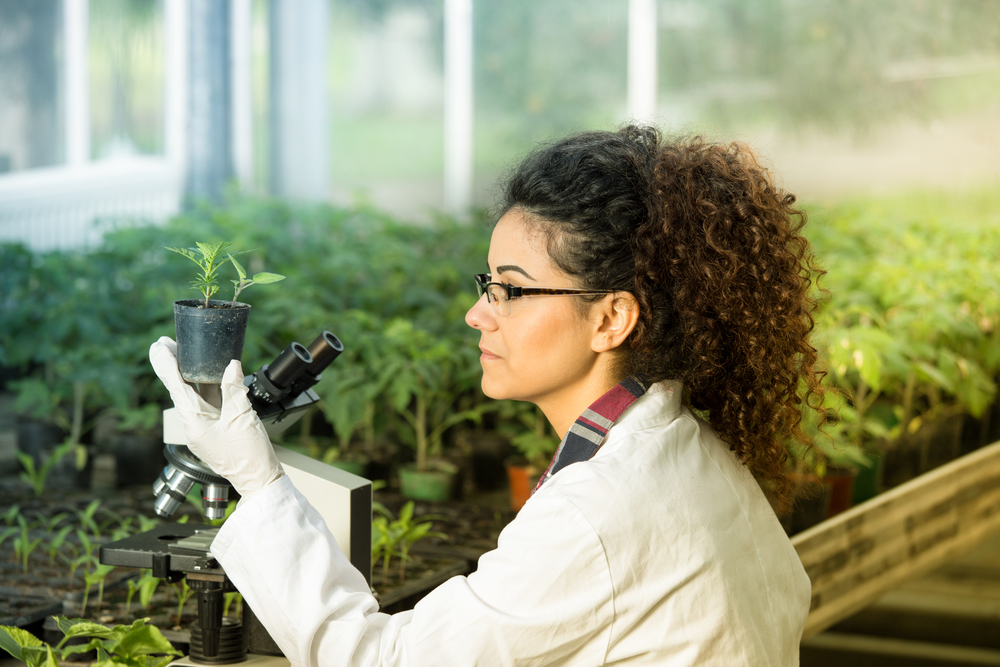Together with SENASICA, IICA contributes to strengthening agrifood health and safety in Mexico

Mexico City, 27 April 2021 (IICA). - The Delegation of the Inter-American Institute for Cooperation on Agriculture (IICA) in Mexico presented accountability reports on the six operational programs it developed with the National Service for Agrifood Health, Safety and Quality (SENASICA) in 2020 to help safeguard the country’s phytosanitary status.
The technical and financial reports on this work, which is carried out within the framework of an agreement with the Secretariat of Agriculture and Rural Development (SADER) of Mexico, were presented during a meeting attended by Francisco Trujillo, Senior Director of SENASICA; Diego Montenegro, IICA Representative in Mexico; and Civil Service representatives.
The operational programs are Phytosanitary Inspection, Epidemiological Diagnosis and Surveillance, Moscamed, Moscafrut, SENASICA State Coordination and Assistance and Substantive Functions.
SENASICA carries out priority projects related to epidemiological surveillance; phytozoosanitary, aquaculture and fishery campaigns; actions of systems aimed at reducing contamination risks; and inspection in the import, export and mobilization of agricultural products to preserve and improve the country’s sanitary and food safety conditions.
The actions, goals and budget execution of each operational program at the close of the 2020 fiscal year were presented during the meeting. The execution of these programs has facilitated the surveillance and monitoring of pests and diseases of economic relevance at the global level, including 92 animal diseases, 45 aquaculture diseases and more than 1,000 agricultural pests, most of which are not present in Mexico.
Also highlighted was Mexico’s Integrated Pest Management (IPM) using the Sterile Insect Technique (SIT), which, as part of the fruit fly strategy, has contributed to safeguarding the phytosanitary status of the country, where 52.18% and 9.03% of the territory are fruit fly-free areas and low prevalence areas, respectively.
Also noteworthy is the application of biological control during transitory entries of Mediterranean fruit flies through the production and release of the parasitoid wasp Diachasmimorpha longicaudata. This method allows for protecting, at the national level, the main products that are hosts of the pest, which attacks more than 250 fruit tree and vegetable species of economic importance.
Details were provided on various efforts carried out, such as sampling, destruction of contaminated fruit, terrestrial spray application, use of bait stations and the release of sterile flies, as well as measures taken to prevent the entry of exotic flies in several states throughout the country.
During the meeting, it was pointed out that the COVID-19 pandemic had hindered the execution of some of the programmed activities of the operational programs, given the inability to carry out in-person activities. However, one advantage of the lockdown period was the extensive creation of technical-scientific datasheets and documents (plant health), the maintenance of current phytosanitary statuses and the strengthening of safety actions through training for technical personnel.
In attendance during the presentation of the reports corresponding to the close of the 2020 fiscal year were authorities from SADER and the Civil Service Secretariat; the Internal Control Body; directors of plant health, animal health, agri-food safety and diagnostic laboratories; and officials from SENASICA.
Francisco Trujillo, Senior Director of SENASICA, highlighted the international recognition the country had achieved due to the actions aimed at safeguarding its phytosanitary status.
“The work being carried out is a matter of great responsibility because it maintains and improves the country’s sanitary and agrifood safety conditions. It is also a matter of national security, as it allows for consolidating Mexico’s standing as a country that exports healthy, safe products to more than 180 countries”, noted Trujillo.
IICA underscored the importance of the actions implemented in Mexico to strengthen the Moscamed Program, a tri-national effort with the United States and Guatemala. Using a regional approach to achieve better results, the program has responded to the entry of at least three types of exotic flies that were successfully eradicated in 2020.
The reports presented demonstrate the transparency with which IICA executes its technical cooperation actions for the benefit of agriculture in Mexico and the Americas, stated Diego Montenegro, IICA Representative in Mexico.
“The positive results achieved through the implementation of these sanitary programs have facilitated swift responses to prevent and control pests and diseases of economic importance to the country, such as the Mediterranean fruit fly”, he concluded.
More information:
Diego Montenegro, IICA Representative in Mexico